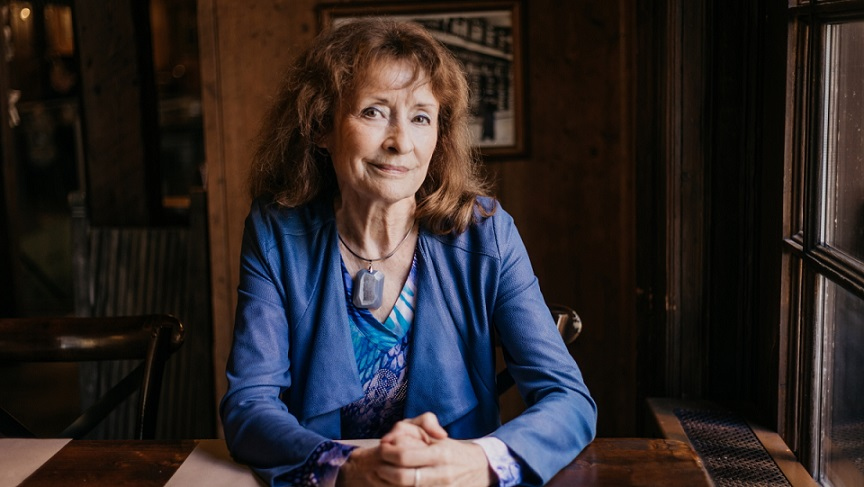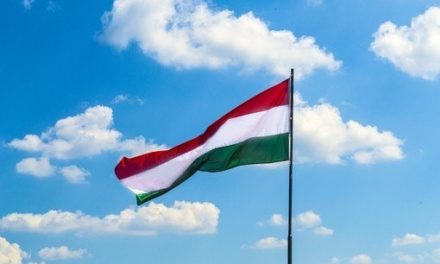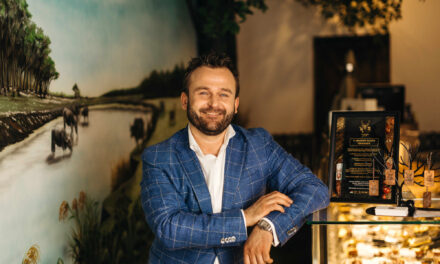The EU is an increasingly peaceful place, its inhabitants have their snowshoes full of the influx of migrants, the imposition of gender theory... It is better here, in Hungary, say the Dutch and Germans who choose our country as their so-called home. Written by Katalin Kondor.
Now, when the debates are about the mandatory resettlement of so-called migrants, I want to write about the strange company of those who have already settled. (…)
At that time, my friends from the countryside informed me that it is likely that here in Budapest we do not know how many Germans, Dutch and other people living in the territory of the European Union chose our country as their new home. We really didn't know about it.
In several settlements of Tolna, Baranya and Nógrád counties, there are already people who have chosen a legal path and decided that our country will provide them with a living space that they did not get in their own country. Deep sociological and psychological research would be needed for these people to tell us about their lives, I would not miss this opportunity if I were the experts, in any case the settlers say thank you, they are well, they like to live here, and they want to die here too when the time comes. . It is very natural for people to look for peace, the possibility of a peaceful life.
Well, let's go back to the early days, when I was faced with the fact that, while visiting a beautiful area of Nógrád County, a Dutch person decided that he wanted to live here. And he would also bring his friends from his home country. In other countries, this custom is, I think, not as noticeable as here. Not many of us Hungarians are in a position where we can create our own little world even in remote parts of the world, especially if our friends are with us, because the implementation of such a plan costs a lot of money.
Since we have been members of the union, I have often thought about whether it is good for us to have joined countries whose inhabitants are much wealthier than we are, so they have much more business and lifestyle opportunities in "free" Europe than the Hungarians.
I couldn't decide, and I didn't have enough knowledge about what we benefited from the fact that many foreigners bought houses in the fashionable districts, many foreigners bought apartments in the expensive city center because they could afford it.
All this is possible within the Union. We also know that many foreigners have started agricultural businesses throughout our country, and many have renovated farms, all of them coming from the richer part of Europe.
I think the situation is similar in other former socialist countries. To this day, I don't have an iota of envy, the main thing is that the country is beautifying, no matter what happens, houses and land cannot be "rolled home" thousands of kilometers away.
As I mentioned above, I can thank an acquaintance of mine who informed me that a Dutch citizen bought an entire village in Nógrád.
It is a small and picturesque village, a pocket village, maybe if there were twenty or so houses in it. It is called Bedepusta, and the rumor is that the Dutchman bought a house for his residents in one of the neighboring villages, supposedly to the complete satisfaction of all of them, because they had all already moved out. The entrepreneur in question may be a skilled person, who stated that his decision was primarily motivated by emotion: he fell in love with the landscape and peaceful Hungary.
There is no cure for love, and in such cases, the imagination also stirs in a person. He was no longer just squirming, as he had definite plans within a short period of time. He not only wanted to create a good place for himself, but also dreamed of a small tourist center there, in the embrace of Börzsöny, close to Hollókő.
It didn't bother him that there was no so-called infrastructure, he decided that there would be. According to the photos sent, the bar (it is not appropriate to call it a pub) has already been completed in the central building, in which it intends to operate the services - meals, information - with the people of the area, leaving the income from these to them. The pool is already ready, and he plans to rent out the entire village for wedding gatherings, corporate events, etc. Of course, the houses separately.
What's more, he is also launching a press campaign in his homeland, the Netherlands, and then the Dutch can come. One already came, and he liked the countryside and the plan so much that he bought a house, in which he not only wants to live permanently, but also to establish a tai-chi center. And he doesn't want to go back to the Netherlands.
The developer of the original plan said that he has spent HUF two billion on the project so far, which is supported by the fact that the houses to be renovated (there are twenty-four of them) do not lack modern, environmentally friendly technology, which, as we know, is not cheap.
"It's a jewel box in ruins, and the surrounding area is a treasure mine," said the very sympathetic owner, at least based on his photo, about his beloved village. You're right. Anyone who knows the area knows that. And you also know that there are many such treasures in Hungary, but there are still few Hungarians who can weave dreams similar to those of the Dutch. So, somewhat bitterly, but without a trace of envy, we wish him the best of luck in realizing his plans, and also to make him feel good in Hungary. (Acquaintances of mine claimed that he was having a great time right from the start.)
What's more, lately we have completely understood that he moved to us. The Netherlands and the entire EU are an increasingly peaceful place, its inhabitants have their snowshoes full of migrant data, the imposition of gender theory, and we could list the excesses of the European Union that make life difficult. It is better here, in Hungary, they say, where more and more German citizens have also settled.
I am very sorry that the vast majority of Hungarians cannot cherish such plans. In other words, he founds a village at home or anywhere in Europe, and moves away from the increasingly unlivable big cities, together with his friends. But the story of the Dutchman is also about what we always like to hear, it's good to live here, it's good to be Hungarian. And more and more of us think that even poorer is better than in the increasingly impossible European Union. We welcome everyone who thinks so.













